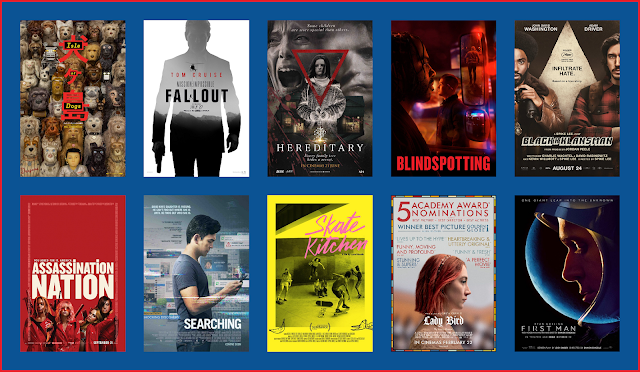Once Upon a Time... in Hollywood Review
(A version of this article originally appeared on kernelnow.com / mynewslike.com)
There are few directors in modern cinema that can sell tickets to a movie on the value of their name alone, and at the head of that list sits one name: Quentin Tarantino. A man whose mystique precedes him – this being his ninth and, apparently, penultimate film – his unique appeal extends to casual cinema-heads and discerning film essayists alike.
After two straight Westerns, Tarantino returns to the world of pure storytelling in Once Upon A Time… In Hollywood, a genre-free film that does warp through as many different styles in 165 minutes as its creator has in 27 years. Through the guise of the dwindling career of Rick Dalton (Leonardo DiCaprio) and his stunt double/driver/closest friend Cliff Booth (Brad Pitt), the film weaves through a Polaroid of 1960s Hollywood populated by the likes of Sharon Tate (Margot Robbie) as Rick tries to maintain his standing in a rapidly changing movie business.
The performances from joint leads DiCaprio and Pitt are as satisfyingly terrific as expected, considering the Oscar-winning actors and their director. Pitt’s turn noses out in front in terms of quality – he’s a wandering nomad in the vein of Dennis Hopper or Paul Newman – and he emerges as more than just a sidekick, the proactive badass who barely breaks a sweat. However, DiCaprio’s Dalton proves a more complex character.
 |
| Big boys don't.. thrive? Rick Dalton (Leonardo DiCaprio) and Cliff Booth (Brad Pitt) (l-r) (source: Sony Pictures) |
For the film-maker himself, his love of film and its history
manifests here as more than just a “ripping off” of
characters, scenes and music. In the self-proclaimed twilight stages of
his career, Tarantino’s knowledge and passion is blazing out in a
supernova-esque manner, exploding all he has learnt and adored into the
most truly original world he has yet created. That is a curious
statement considering the use of icons Tate, Bruce Lee (Mike Moh) and
Steve McQueen (Damian Lewis), but there are very few homages to the
likes of Sergio Leone and Takashi Miike than have been the norm
throughout his career. It’s as if, suddenly very assured of his own
place as a legendary film-maker, Tarantino has finally allowed his own
vision to shine without need of an assist.
 |
| History in the rear-view mirror: Rick and Cliff cruise through Hollywood (source: Sony Pictures) |
The problem with leaving aside these deliberate references and visual
cues is that it assumes a great deal of knowledge and context on the
part of the viewer. Once Upon a Time… requires at least some
awareness of the social climate and showbiz culture of the 1960s and
though the film would still work without it, the greater the audience’s
understanding then the greater the enjoyment. Between his eradication of
iconic tropes and presumption of awareness, it could be argued that
Tarantino is displaying some arrogance in his
world-building – though, of course, it could be argued that he
has earned some degree of self-assuredness.
No other element of the film better showcases these issues than Margot Robbie’s Sharon Tate. There was obvious controversy surrounding the inclusion of this character in the film, considering her murder at the hands of ‘The Manson Family’ at the time in which this film is set. In depicting such an icon at both the height of her powers and the end of her life, there were seemingly few ways in which the notoriously prone-to-violence director could portray this character: without spoiling the plot, all that can be really said is “expect the unexpected” – and then expect something else again. Nevertheless, the way in which she (and this time in her life) are represented leave one questioning just why she was written into the film, and whether or not Tarantino’s continued dalliances with controversy will dominate the conversation once again.
 |
| Sharon Tate (Margot Robbie): The wide-eyed idealisation of stardom (source: Sony Pictures) |



Comments
Post a Comment